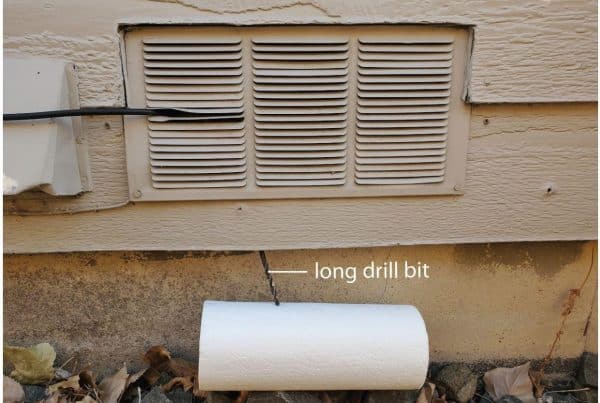If you’re ready to sell your property, you may have a compelling reason to do so quickly, such as a new job starting shortly in another location. Selling a property quickly requires a certain amount of luck, but if you’re doing everything right on your end, it’ll only be a matter of time until the appropriate buyer comes along.
On the other hand, if you don’t make the required efforts to prepare your house for a quick sale, you risk alienating potential buyers who would have made an offer if the circumstances were different. You must take an active role in the selling process if you want to sell your property quickly.
Don’t wait for a customer to look past the problems. Do your investigation, make repairs, and do what’s needed to demonstrate how fantastic your property is. Buyers are becoming increasingly well-informed; therefore, sellers who have a firm grasp on the market, are aware of current trends, and have reasonable pricing expectations will always be the first to attract their attention.
While there are some aspects over which you have no control, you can go through a helpful checklist when selling a home to attract investors and assist in closing the purchase. Here are nine pointers to help you get started.
Locate the Most Appropriate Real Estate Agent
Make sure you’re working with a knowledgeable broker. They must regularly watch the multiple listing service (MLS), know what homes are on the market, and be aware of comparable sales in your area. Find a broker that embraces technology; a tech-savvy broker will have many tools to help you sell your home.
The ideal candidate will have a track record in sales that demonstrates their ability to close deals. Remember that real estate agents assist you throughout the process, from hiring a professional photographer to negotiating the best price. They’ll also prepare a sellable real estate listing, plan, and host showings, and advertise your home.
You want to work with a realtor who is as passionate about selling your house as you are, which means someone who will tell you precisely what you’re doing wrong and how you can fix it. Inquire about references from individuals you know and who have gone through the procedure. Consider your specific requirements, and don’t be scared to inquire.
Set a Reasonable Price
Everyone wants to get the most money out of their house sale, but keeping things in perspective is crucial. What you paid for the house is less important than what the market dictates at the moment. You don’t have to underprice your property, but you have to price it wisely.
Your real estate agent will research comparable houses in your region to arrive at a reasonable price. It’s also a good idea to consider the pricing points that buyers in your region are looking for. If you advertise your property for $302,000, you’ll miss out on all the possible buyers searching for homes under $300,000.
Get Your Compliance Certificates In Order
You, as owners, are required by law to guarantee that the property is legally suitable for sale, and the transfer attorney must have the necessary compliance certifications before the transfer occurs. These don’t take long to obtain if everything is in order, but repairs need to be done before the certificate can be provided.
While council-approved home designs are not a legal requirement, purchasers can ask for them. Not having the above in order can cause delays and even derail the sale.

Tackle DIY Projects
There’s no need to over-renovate your property, but minor fixes will be seen and appreciated. An ancient front door might benefit from a fresh coat of paint or varnish. You won’t have time for substantial improvements, so concentrate on fast fixes to solve any issues that could turn off potential buyers.
Take a look around the house and take care of the minor issues:
- Fix loose and chipped tiles
- Remove stains on carpets
- Replace broken or cracked windows
- Tighten dripping faucets
- Fix door handles and knobs
Consider Curb Appeal
This is crucial since it is here that first impressions are formed, so keep both the garden and the entry to your house neat. Trim the shrubs, and don’t forget the sidewalk. Even if you’re selling your house during winter, make sure the pool is gleaming clean. A neat exterior not only looks excellent, but it also shows potential buyers that you’ve taken care of the property.
To improve the curb appeal of your property, do the following:
- Paint your front door
- Plant some flowers
- Remove debris and spiderwebs off of surfaces
- Clean the windows
- Mow the lawn
- Fix the mailboxes and light fittings
Clean
Buyers must be able to envision themselves living in the home, something they would be unable to do if your home is in disarray. Clean your house thoroughly from top to bottom. Increase the amount of natural light in your property since adequate lighting is at the top of most buyer wish lists.
Most buyers will overlook minor problems if the home seems big, light, bright, and open. Clean the windows and draw the curtains back. Remove excess furniture such as side tables and objects that make rooms appear smaller, and clear the counters.
This allows potential buyers to see their appliances in your kitchen – and imagine the food they’ll cook there. Also, half-empty wardrobes if they are overly full and messy so that viewers do not receive the impression that there is insufficient storage space.

Declutter
Rearrange the furnishings while you’re at it so that your house appears inviting and buyers can move without bumping into anything. Get to work on decluttering your home as soon as you know you’re going to market it. Rent a storage facility or find a family member who is ready to share some extra room in their house, and pack whatever you won’t need in the near future.
This includes out-of-season apparel, books, the majority of your décor, and pretty much everything that’s been collecting dust in the back of your closets and cupboards for a long time. The less clutter you have in your property, the more purchasers will be able to perceive the space itself rather than the objects that are clogging it up.
Depersonalise
Buyers need to be able to see themselves in the home, which they won’t be able to accomplish if they’re gazing at your family photographs. The sooner you can remove any personal belongings from the house — photographs, letters, personal documents, etc. – the better you’ll be able to offer a blank slate to potential purchasers.
Seeing someone else’s occupied house is already a little unsettling for most people. It also takes their attention away from what they should be looking at: the benefits of your house. Remember that it’s all about envisioned lives — potential buyers must be able to envision themselves living in the home.
Stage Your Home
Your property must be furnished in such a manner that it showcases its greatest features to sell quickly. Eliminate any items that date your home, such as holiday decorations. Make sure you’re designing your area to appeal to buyers and demonstrate that they won’t have to make a lot of effort if and when they move in.
Consider hiring a stager to help you highlight your home’s greatest features, impress potential buyers, and sell it as fast as possible for the best price. Staging isn’t inexpensive, but according to the National Association of Realtors (NAR), staged homes sell 88 percent faster and for 20 percent more than non-staged properties.
The Bottom Line
Selling a property may be stressful, especially if you’re working under a deadline. Concentrate on the initial impression if you don’t have a lot of money to spend on getting your house ready to sell. Buyers can make a selection in a matter of seconds. Make the most of your time.
If you take the time to optimize each step of the process, you may sell your home much faster. While you can’t make a buyer appear out of thin air, you can do everything you can to ensure the appropriate buyer does. Every house is different, with its own advantages and disadvantages that you must highlight while defects are minimized.








